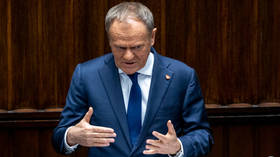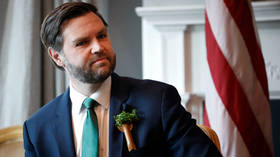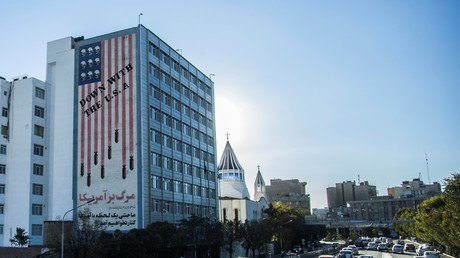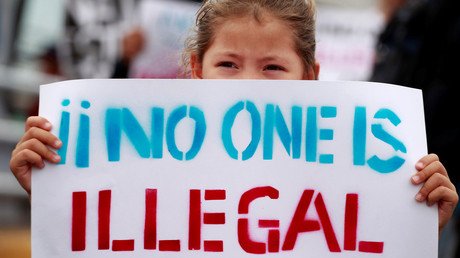Monty Python’s Cleese to leave UK due to British press - ranked bottom of EU trust league
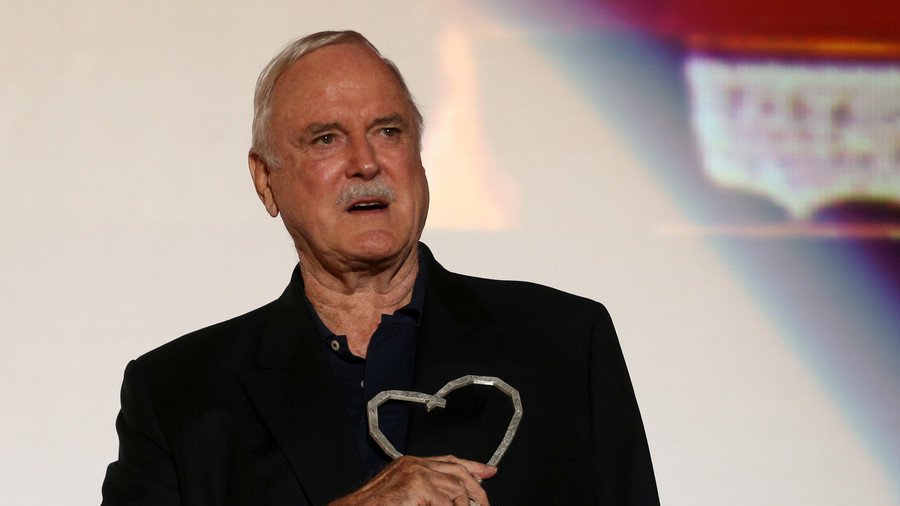
Actor and comedian John Cleese has declared he will leave the UK later this year due to the “lying and triviality” of the British press – ranked the least trustworthy among 33 European nations.
Cleese appeared on BBC Newsnight on Tuesday to express his frustration at the current state of Britain. While exasperated at the level of debate on Brexit, he more pointedly stated that his “particular beef” was with the British press.
The 78 year old, a long-time Liberal Democrat supporter who voted leave in the 2016 EU Referendum, came armed with a clipboard and chart to highlight the research carried out by the EU each year on the trust level, in the printed media by its citizens.
“It’s the lying and the triviality that I object to.”This is John Cleese showing his trust in the written media chart per country… The United Kingdom is the lowest on there@JohnCleese | #newsnightpic.twitter.com/AQ1piN8Exe
— BBC Newsnight (@BBCNewsnight) July 10, 2018
The eccentric actor got BBC presenter Emily Maitlis to confirm that according to the extensive public opinion polling carried out by the European Broadcasting Union (EBU), the UK is ranked last out of 33 European countries on levels of trust in the press.
Cleese laughed when Maitlis suggested the statistics illustrated that the UK press was robust, adding: “Least trusted does not necessarily mean not true.”
Cleese, who has been a vocal supporter of electoral reform, advocating a move to proportional representation, as well as press reform, told the BBC that he was upping sticks to relocate to the tiny Caribbean island of Nevis in autumn later this year.
“It’s one of the nicest islands I’ve ever been on. The relationship between the races is absolutely superb. The people there are really kind,” he said of Nevis.
So has the UK got an issue with levels of public trust in the print press and the media more widely?
Based on the EBU’s latest 2018 report, which surveyed approximately 1,000 people aged 15 or over in 33 European nations in 2017, it would appear so.
As Cleese said, the UK is ranked 33rd out of 33 on public trust in the press. Almost two-thirds of British people surveyed “tend not to trust” their print media. Only 23% “tend to trust” and 4% “Don’t know” if they trust the British press - meaning the British public have a net trust level of -50 in the written press.
The Netherlands tops the EU’s written press trust league, with 71% of their citizens declaring trust in their press and only 25% saying they do not trust them.
Looking at public trust levels in the media more broadly, the UK comes bottom again with Albania, Portugal, Slovakia, Austria and Belgium topping the list. Half of Brits have “low or no trust in the media,” 39% have “medium trust” and a minuscule 9% have a “high trust in the media.”
Other notes of interest include the EBU’s findings that show there is a correlation between press freedom and broadcast media. Britain (GR) as illustrated below, does not come out with flying colours, ranking very lowly.
Social media has played an ever-growing role in distributing information, however there are concerns that platforms such as Facebook and Twitter lack the required regulation to safeguard against unsafe sources of information. The EBU report shows that people have less trust in social media than any other medium ranking 5th (1. Radio 2. Television 3. Print Media 4. Internet 5. Social Media).
For a nation that prides itself on its historic “democratic values,” can Britain confidently conclude that democracy has never been so strong, when public trust levels in those that hold the UK government of the day to account are incredibly low?
Can a nation be truly democratic if the people do not trust a key source of information? The rise in accusations of “fake news” discourse cannot help matters for the beleaguered industry.
Radical reform of the print media may be the only way forward to regain public trust. Less select few of billionaire newspaper owners, such as Rupert Murdoch and Lord Rothermere and more democratically run print companies – operated in the interest of its citizens, free from close relationships with the political establishment.
Like this story? Share it with a friend!





